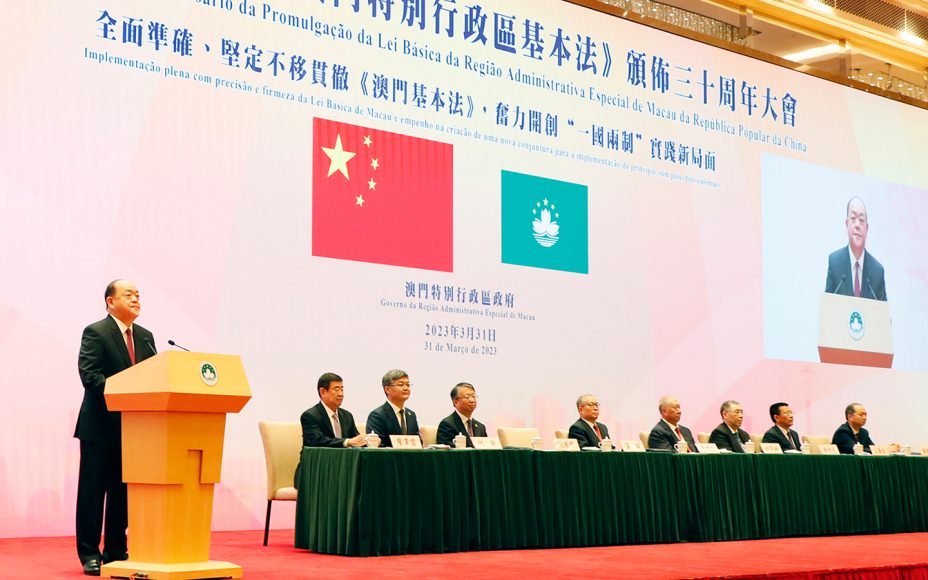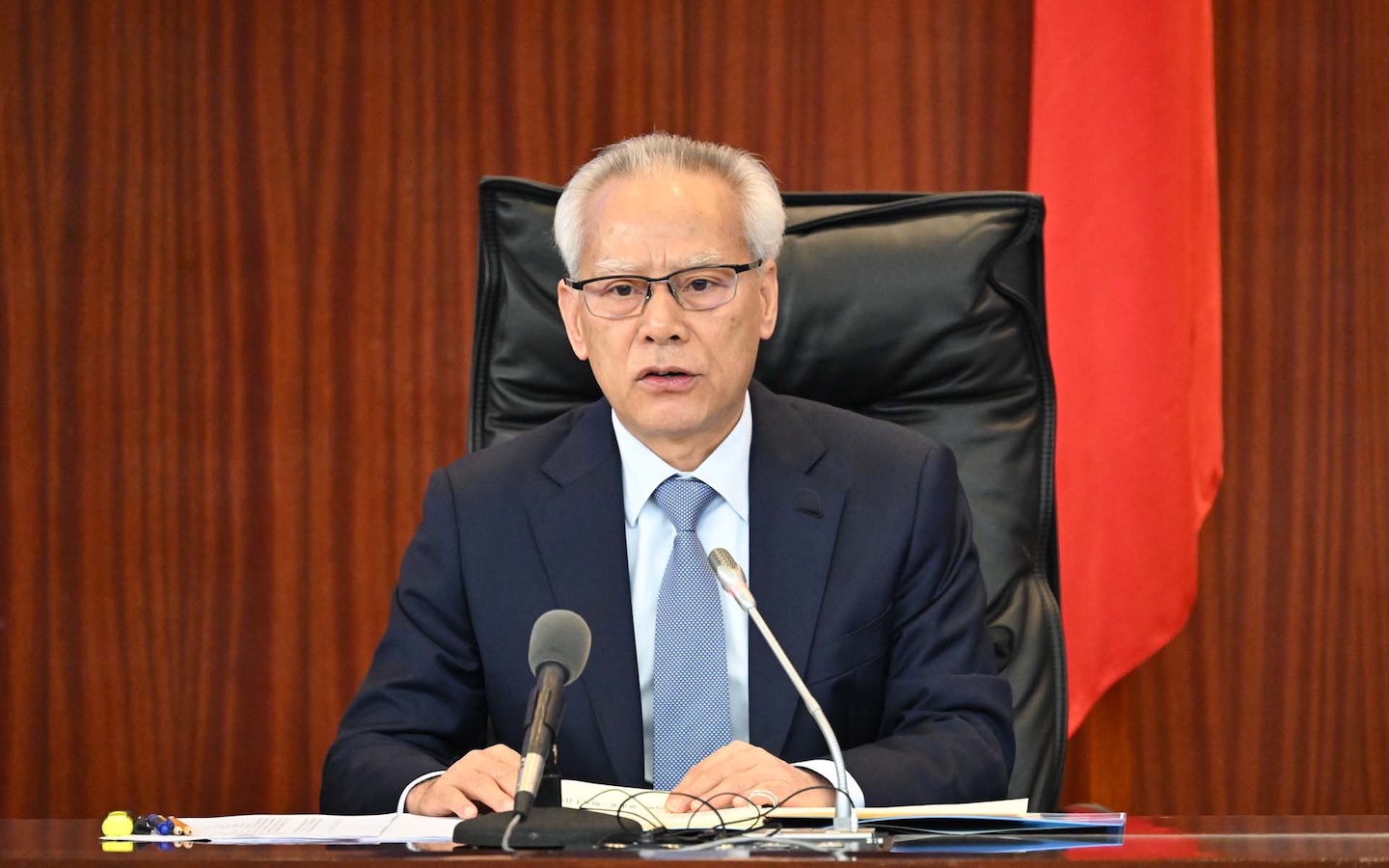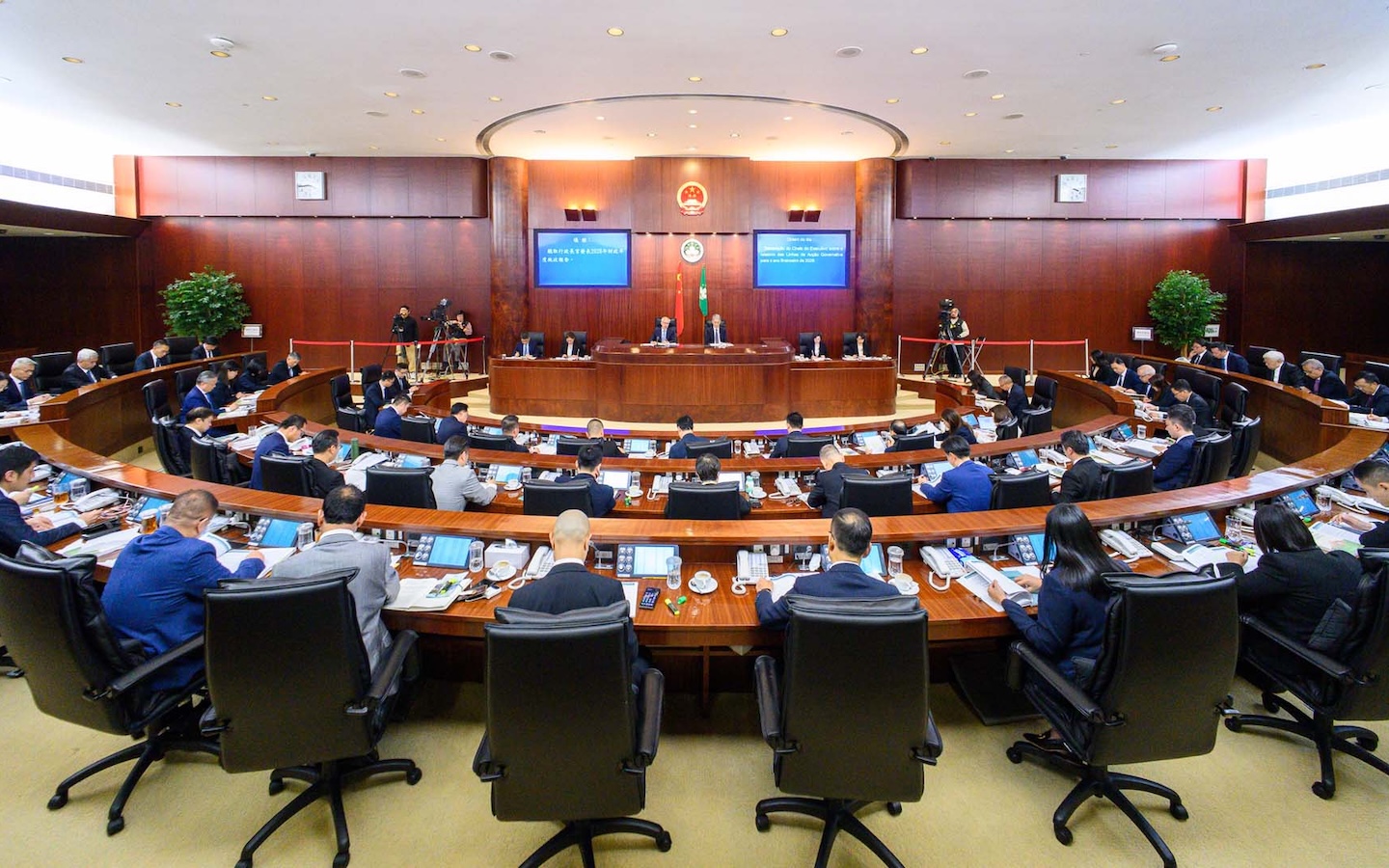Macao’s Basic Law celebrated its 30th anniversary on 31 March. At a ceremony held at the Forum Macao complex, Chief Executive Ho Iat Seng described the milestone as “historic” – and praised the 1993 legislation for setting the territory on a “magnificent route”. Vice-Chairman of the National Committee of the Chinese People’s Political Consultative Conference Edmund Ho Hau Wah and Vice-Chairman of the National People’s Congress (NPC)’s Standing Committee Li Hongzhong were also in attendance.
The Basic Law serves as the Macao Special Administrative Region (MSAR)’s constitutional document. Enacted in 1993 by then-President Jiang Zemin, the law wasn’t put into practice until 20 December 1999 – the same day Macao’s administration was reverted back to China.
Since then, the territory has firmly adhered to its Basic Law and successfully implemented the “One Country, Two Systems” principle codified by the legislation, said Ho. While acknowledging there was scope to better integrate Macao into overall national development, the chief executive affirmed that “One Country, Two Systems” was the best arrangement possible for Macao’s long-term stability and prosperity.
“The MSAR had seen rapid development, with a focus on appropriate economic diversification,” he said of the past 24 years. “Fundamental rights enjoyed by Macao residents, and their welfare and well-being, were securely protected. There had been progress in various undertakings relating to the community. Macao had strengthened its effort regarding regional cooperation, and enhanced its role in relation to external exchange and cooperation.”
A brief history of the Basic Law
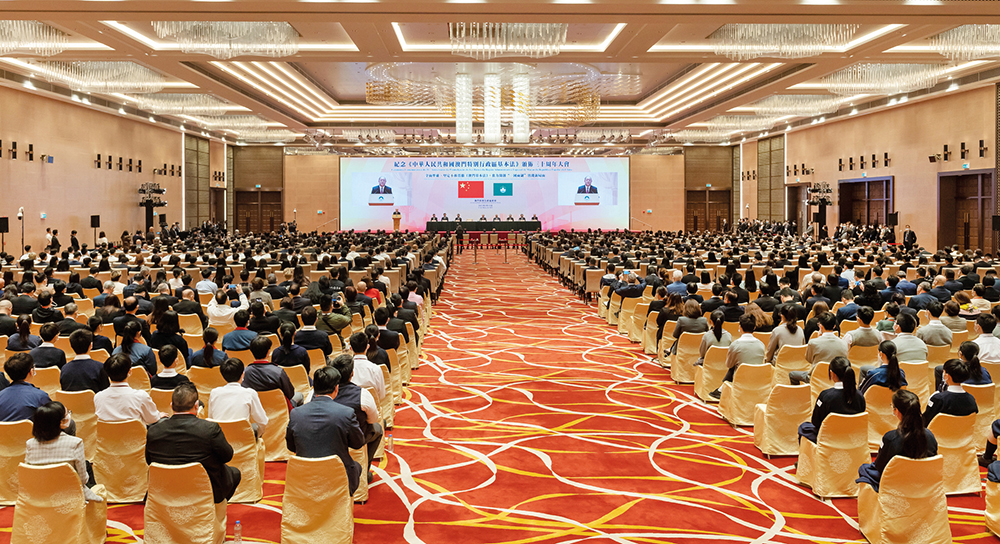
The Basic Law was conceived back in 1988, by a drafting committee set up under the NPC.
The legislation was enacted on 31 March 1993, with the intention it would not be applied until Macao’s administration was transferred back to China.
Macao’s Basic Law is, in effect, an entrenched constitutional document. It spells out the rules for the territory’s government and grants substantive rights to its residents. It also confirms that Macao is an inalienable part of China – that only the NPC has the power to interpret and amend the Basic Law.
Hong Kong has its own, similarly structured, Basic Law. A unique part of the Macao version is its protection of possibly the world’s largest Eurasian community: the Macanese. Chapter III Article 42 protects “the interests of the residents of Portuguese descent in Macao,” guaranteeing respect for their customs and culture. This is in acknowledgement of the almost 450 years the territory spent under Portuguese administration.
Another key piece of legislation during the handover period was the Sino-Portuguese Joint Declaration, signed in 1987. This established the framework for Macao’s peaceful handover from Portugal to China and confirmed the territory’s then-future status as a Special Administrative Region (SAR) of China. It set out the “One Country, Two Systems” principle.
Today, the Joint Declaration is considered an important historical document that shows how two nations, with different political systems, can peacefully solve problems stemming from the past. The Basic Law has replaced it as Macao’s primary legal document, ensuring the SAR’s high degree of autonomy within the “One Country, Two Systems” framework.
Politburo member praises Basic Law
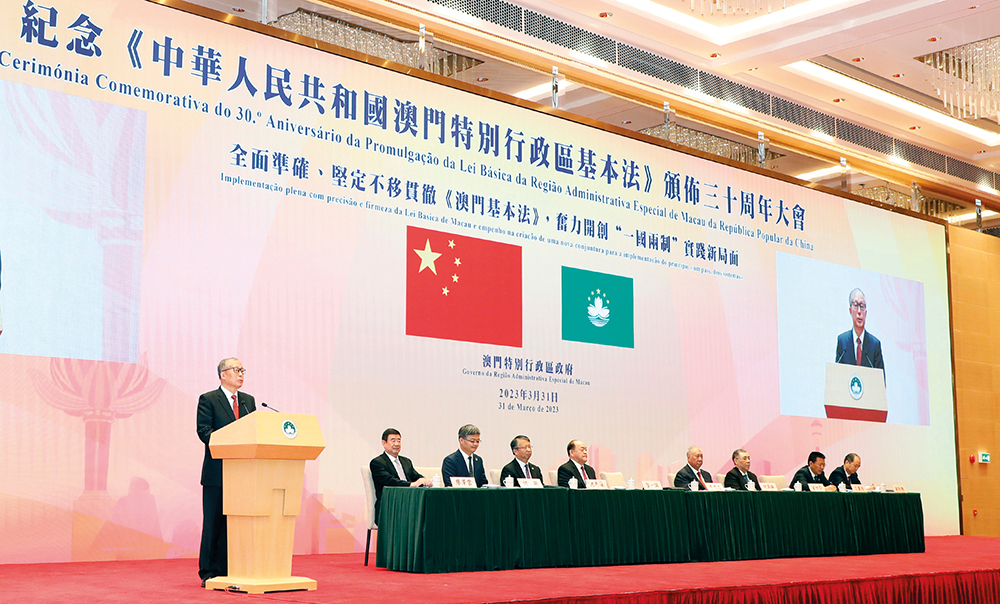
Li Hongzhong, Politburo member and vice-chairman of the NPC’s Standing Committee, was the keynote speaker at the 30-year anniversary ceremony. He described how the Basic Law – alongside China’s national constitution – provided an all-round legal guarantee for Macao’s continued development under the “One Country, Two Systems” principle.
Li said that since Macao’s return to the motherland, the city’s residents have enjoyed a wide range of constitutionally protected rights and freedoms. These include freedom of speech, the presumption of innocence, and equality before the law. The Basic Law also enables residents to participate in State affairs through multiple channels.
“The development of the MSAR’s democratic political system has fully embodied the political principles of broad representation and balanced participation,” Li noted.
In his speech, Li pledged that the central government would continue to implement the Basic Law principle of “patriots governing Macao”.
Good economic prospects
The vice-chairman also noted that since its return to the motherland, Macao had experienced rapid economic growth. While the city’s economy is facing temporary difficulties due to the Covid-19 pandemic, Li stressed that its future prospects had not been affected.
He also underscored Macao’s much closer ties and exchanges with the mainland and the world since the MSAR’s establishment.
Efforts must be made to safeguard national sovereignty, security and development interests; pragmatically implement the central authorities’ overall jurisdiction; maintain the principle of “patriots administering Macao”; and promote the Basic Law as Macao’s constitution, Li said.
Thirty years on, the Basic Law remains as relevant as ever. There may be amendments on the way, brought about by Macao’s integration into the Greater Bay Area and the Guangdong-Macao Intensive Cooperation Zone in Hengqin. But these are testament to the legislation’s vitality; its ability to support the city’s development and progress.
